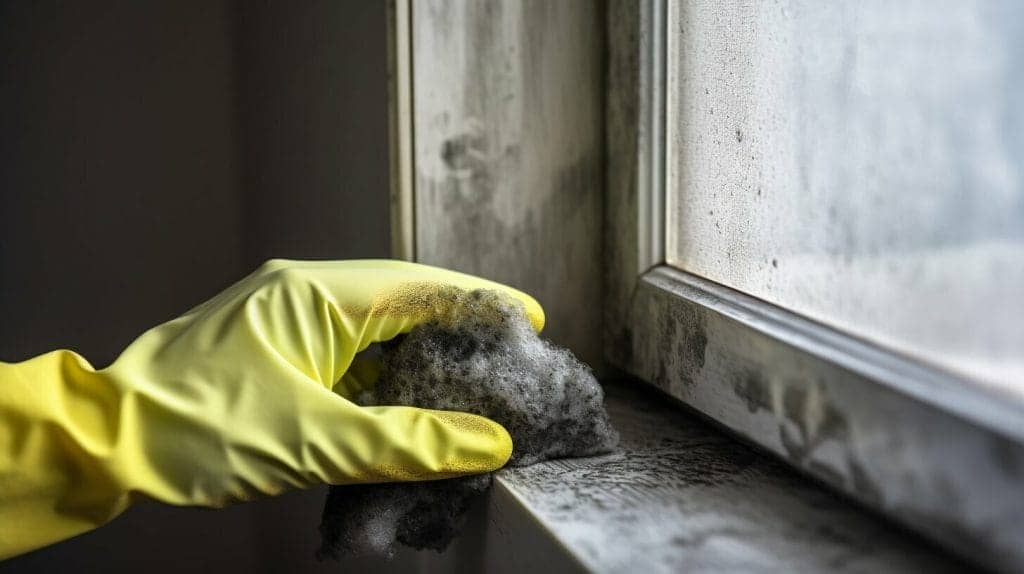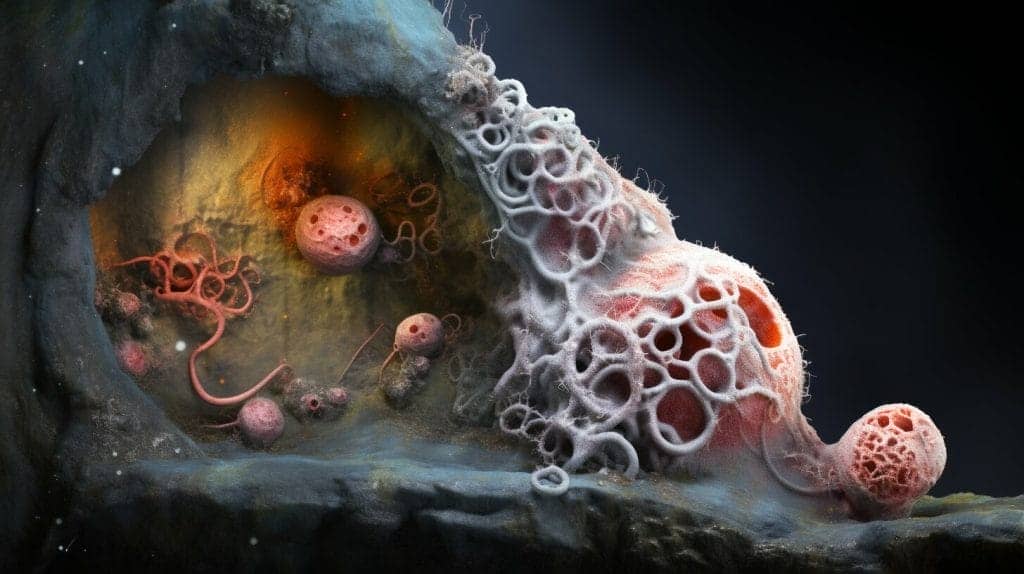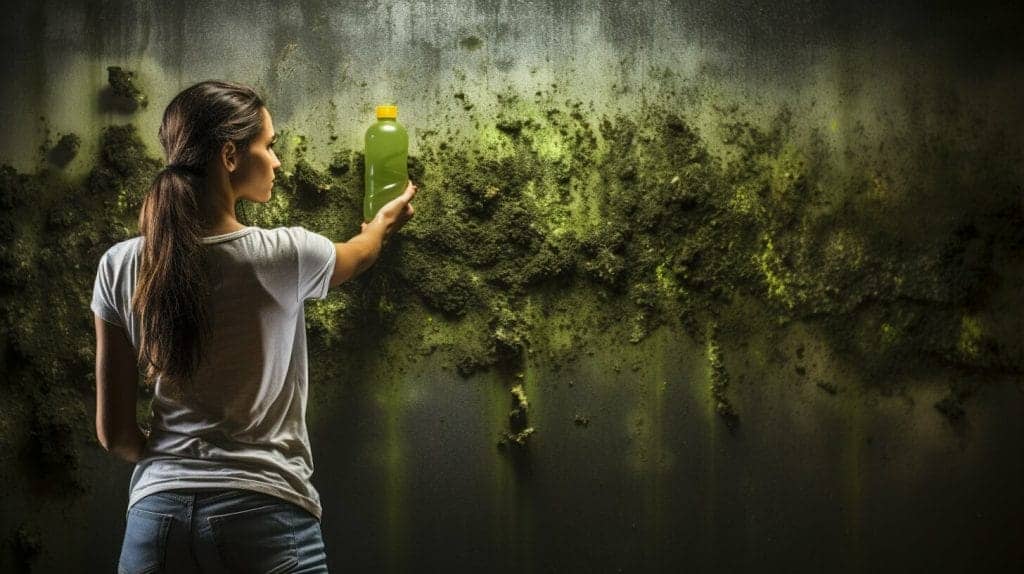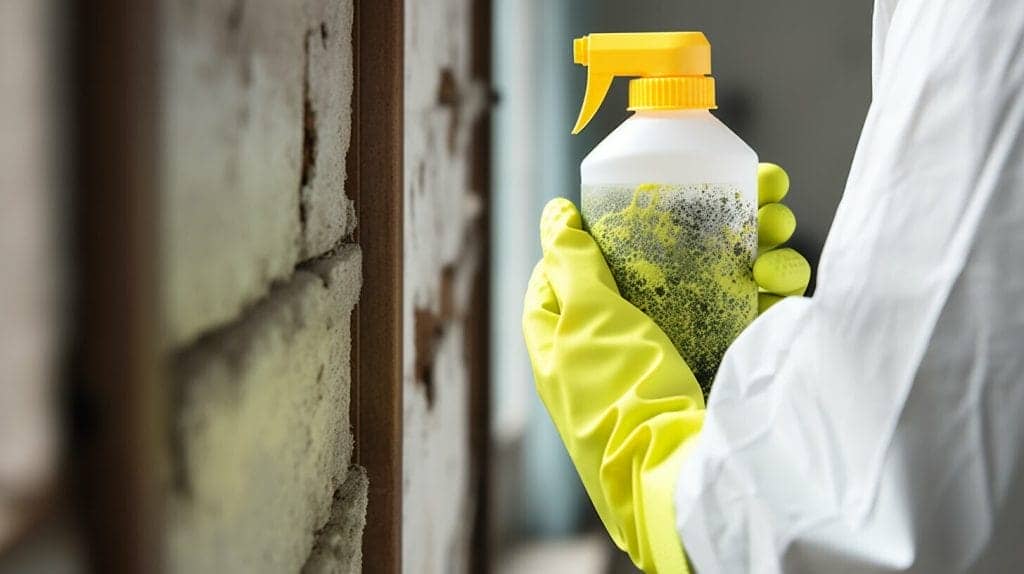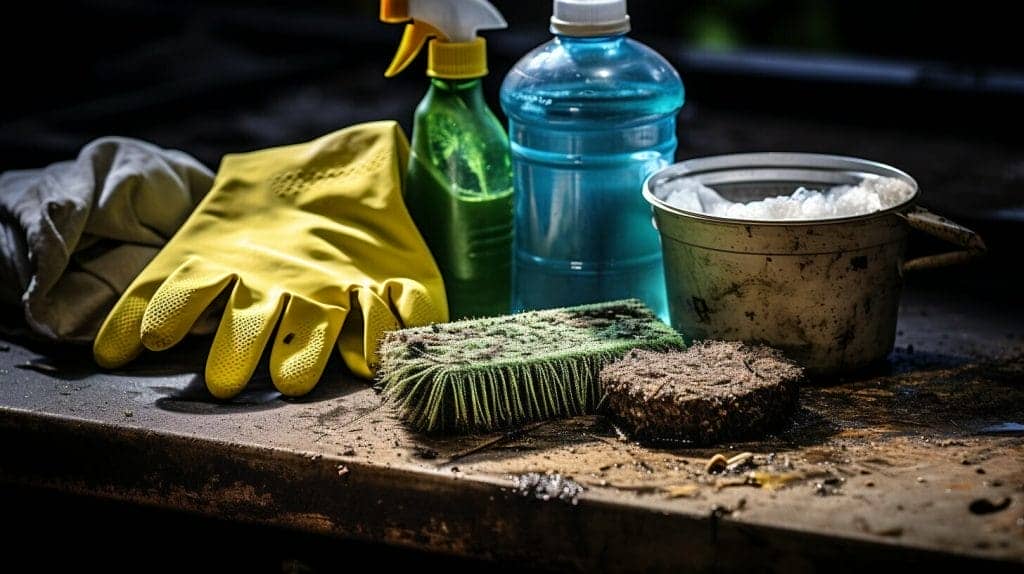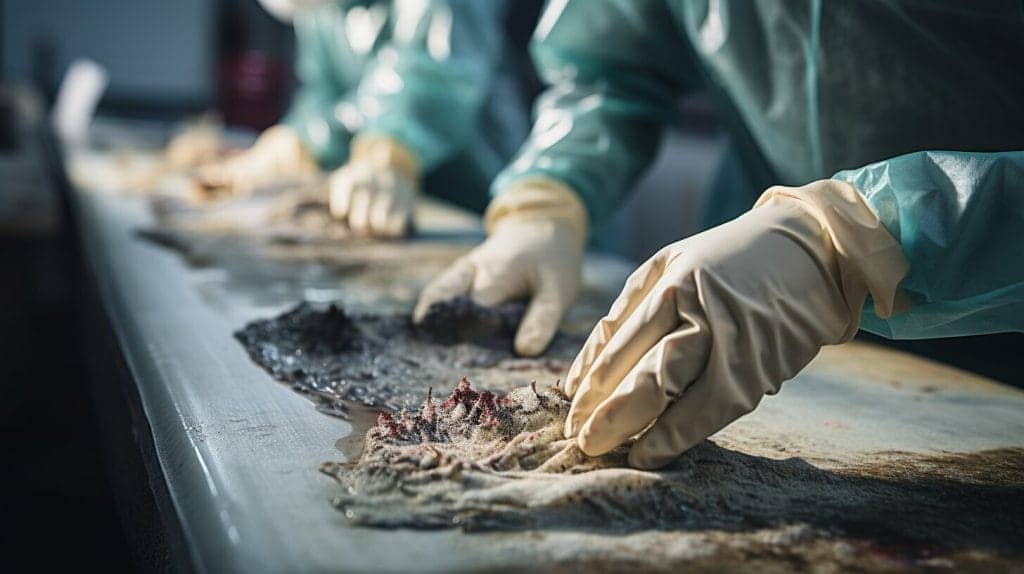Mold is a common household problem that can have serious consequences for mental health. Exposure to mold toxins has been linked to various psychological symptoms, including depression. Fortunately, there are clinical approaches to address mold-induced depression, and healthcare professionals are increasingly recognizing the need for specialized treatments.
In this article, we provide expert insights on clinical approaches to mold-induced depression, covering various treatment options, symptoms, and preventive strategies. We also highlight the holistic mold toxicity treatment program offered at Oasis Medical Institute in Tijuana, MX, which combines conventional medicine and natural therapies to address mold toxicity and promote mental well-being.
Key Takeaways:
- Mold exposure can have a significant impact on mental health, including depression.
- Clinical approaches to mold-induced depression involve various treatment options, including holistic approaches, psychological interventions, medical treatments, and lifestyle modifications.
- Preventive strategies are crucial to minimize the risk of mold-induced depression.
- Early detection and intervention are important for better mental health outcomes.
Understanding Mold-Induced Depression
Mold-induced depression is a specific form of depression that can occur as a result of exposure to mold. Mold is a type of fungus that grows in damp and humid environments, such as bathrooms, kitchens, and basements. When mold spores are inhaled or ingested, they can cause a range of health problems, including respiratory issues, allergies, and even depression.
Research shows that mold exposure can have a significant impact on mental health, particularly in individuals who are already predisposed to depression or anxiety. Symptoms of mold-induced depression may include feelings of sadness, hopelessness, fatigue, difficulty concentrating, and sleep disturbances.
To address mold-induced depression, it is important to first identify any underlying mold toxicity. This may involve testing the air and surfaces in the affected environment for mold spores and toxins. Once a diagnosis is made, a range of clinical approaches can be utilized to address both the mold toxicity and the resulting depression.
Holistic Approaches to Mold-Induced Depression at Oasis Medical Institute
Oasis Medical Institute, located in Tijuana, MX, offers a holistic approach to mold-induced depression treatment. Dr. Francisco Contreras MD advocates for an integrative approach, combining conventional medicine with alternative treatments to address the toxic effects of mold on mental health.
The institute offers a comprehensive program that focuses on identifying and addressing the underlying causes of mold toxicity, rather than merely treating the symptoms. The program includes a range of natural therapies and remedies that aim to support the body’s natural healing processes.
| Holistic Mold-Induced Depression Treatment Program | Description |
|---|---|
| Nutritional Therapy | This involves creating a personalized diet plan to address nutrient deficiencies and support the body’s natural detoxification processes. |
| Intravenous Therapies | This involves administering vitamins, minerals, and antioxidants through an IV to support the body’s natural healing processes. |
| Oxygen Therapy | This involves inhaling pure oxygen to improve cellular function and promote overall healing. |
| Mind-Body Therapies | This includes practices such as meditation, yoga, and acupuncture to promote relaxation, reduce stress, and improve mental well-being. |
| Environmental Medicine | This involves identifying and addressing environmental factors that may be contributing to mold toxicity and poor mental health outcomes. |
The holistic approach at Oasis Medical Institute aims to provide individuals with a comprehensive and personalized treatment plan that addresses the root causes of mold-induced depression. By combining natural remedies with conventional medicine, the program aims to promote long-term healing and improve overall mental well-being.
The Role of Psychological Interventions in Mold-Induced Depression
Psychological interventions can play a critical role in managing mold-induced depression. Therapies such as cognitive-behavioral therapy and counseling can help individuals with mold-related depression to cope with their symptoms and address the emotional and psychological challenges associated with mold exposure.
Cognitive-behavioral therapy is a structured treatment program that focuses on changing negative thoughts and behaviors related to depression. It helps individuals develop healthy coping mechanisms and positive habits to manage their mental health effectively. Counseling provides a safe space for individuals to talk about their problems, express their emotions, and process their experiences with mold toxicity.
Support groups can also be a valuable resource for individuals with mold-induced depression. They provide a sense of community and support, allowing individuals to share their stories, learn from others, and receive emotional support from peers facing similar challenges.
Overall, psychological interventions can complement medical treatments and holistic approaches in managing mold-induced depression. They can help individuals develop effective coping strategies, promote resilience, and improve overall mental well-being.
Medical Interventions for Mold-Induced Depression
For individuals struggling with mold-induced depression, medical interventions may be necessary to manage symptoms and improve overall mental health. Healthcare professionals may prescribe medications, such as antidepressants, antianxiety drugs, or sleep aids, to alleviate mood changes, anxiety, and sleep disturbances.
Medical management may also involve addressing underlying health conditions associated with mold toxicity, such as respiratory problems or weakened immune systems. Additionally, healthcare professionals may recommend nutritional supplements or other interventions to support mental and physical well-being.
Coping Strategies for Mold-Induced Depression
Mold-induced depression can be a challenging condition to manage, but there are several coping strategies that individuals can employ to improve their mental health.
Practice Stress Management Techniques
Chronic stress can exacerbate symptoms of depression, making it essential to practice stress management techniques. Meditation, deep breathing, and mindfulness exercises can help individuals relax and reduce their stress levels.
Engage in Self-Care
Taking care of oneself is crucial for managing depression. Simple activities like regular exercise, eating healthy foods, and getting enough sleep can have a positive impact on mental health. Engaging in activities that bring joy and fulfillment, such as hobbies or spending time with loved ones, can also improve mood and overall well-being.
Make Lifestyle Changes
Making small lifestyle changes can have a significant impact on mental health. For example, reducing exposure to mold by maintaining proper ventilation and avoiding damp areas can help prevent mold toxicity. Additionally, limiting alcohol and caffeine consumption and avoiding processed and sugary foods can also improve mental health outcomes.
Create a Supportive Environment
Surrounding oneself with a supportive and understanding environment is essential when coping with mold-induced depression. Joining support groups, seeking therapy, or confiding in trusted friends and family members can provide emotional support and alleviate feelings of isolation or hopelessness.
Preventive Strategies for Mold-Induced Depression
Mold-induced depression can be prevented by taking measures to minimize mold exposure and its effects on mental health. The following preventive strategies can help reduce the risk of mold-related depression:
- Maintain a clean living environment. Regular cleaning, dusting, and vacuuming can eliminate mold spores and prevent the growth of new mold.
- Ensure proper ventilation. Proper ventilation, especially in high-moisture areas like bathrooms and kitchens, can prevent the buildup of humidity and moisture that can lead to mold growth.
- Use a dehumidifier. A dehumidifier can regulate indoor humidity levels and reduce mold growth in damp areas.
- Fix leaks and water damage. Promptly repair any leaks or water damage to prevent the growth of mold.
- Keep indoor plants to a minimum. Indoor plants can release moisture and increase the risk of mold growth.
- Test for mold. Regular testing for mold can help detect and prevent mold growth before it becomes a problem.
By implementing these preventive strategies, individuals can reduce their risk of mold-induced depression and promote better mental health outcomes.
The Connection Between Mold Toxicity and Mental Health
Mold toxicity can have a significant impact on mental health, causing symptoms such as anxiety, depression, and cognitive impairment. The toxins produced by mold can enter the body through various means, such as inhalation or ingestion, and affect the brain’s functions.
Research has shown that exposure to mold can lead to changes in mood and behavior, as well as impairments in memory and concentration. These effects can be particularly problematic for individuals with pre-existing mental health conditions, such as depression or anxiety.
It’s important to address mold-related issues to improve overall mental well-being. This may involve identifying and treating areas of mold growth in the home or workplace, seeking medical attention for mold-related illnesses, and adopting preventive measures to minimize the risk of exposure.
Symptoms of Mold-Induced Depression
Mold-induced depression is a specific type of depression that can develop after exposure to mold. This condition can have a profound impact on a person’s mental health and well-being. Here are some common symptoms associated with mold-induced depression:
- Feelings of sadness or hopelessness that persist for more than two weeks
- Fatigue or low energy, even after getting enough sleep
- Changes in appetite or weight
- Difficulty concentrating or making decisions
- Loss of interest in activities that were once enjoyable
- Sleep disturbances, such as insomnia or oversleeping
- Physical symptoms, such as headaches, muscle aches, or digestive issues
If you or someone you know is experiencing these symptoms after exposure to mold, it is important to seek professional help. Early intervention and treatment can make a significant difference in managing mold-induced depression and promoting mental well-being.
Diagnosing Mold-Induced Depression
Diagnosing mold-induced depression requires a thorough assessment of an individual’s medical and psychological history, as well as a physical examination. A healthcare provider may also conduct diagnostic tests to identify mold exposure and its impact on mental health.
Medical evaluations may include blood tests, immunological testing, and urine analysis to detect mycotoxins and inflammation. Psychological evaluations may involve assessments for mood disorders, anxiety, and cognitive functioning.
It is important to note that symptoms associated with mold-induced depression may overlap with other mental health conditions, making diagnosis challenging. However, early detection and intervention can lead to better treatment outcomes.
Treatment Options for Mold-Induced Depression
Treatment options for mold-induced depression may vary depending on the severity of symptoms and underlying health conditions. A holistic approach that combines conventional medicine with natural remedies may be ideal for some individuals, while others may benefit from psychological interventions or medical treatments. The following are some of the treatment options available:
- Holistic Approaches: Holistic approaches to mold-induced depression may include detoxification, nutritional therapy, herbal supplements, and other natural remedies. At Oasis Medical Institute, Dr. Francisco Contreras MD offers a holistic approach that aims to reduce mold toxicity and its impact on mental health.
- Psychological Interventions: Psychological interventions, such as cognitive-behavioral therapy, counseling, and support groups, can help individuals cope with the emotional and psychological challenges associated with mold-induced depression.
- Medical Interventions: Medical interventions, such as medications prescribed by healthcare professionals, may be necessary to alleviate symptoms, manage underlying health conditions, and improve overall mental well-being.
- Lifestyle Modifications: Lifestyle modifications, such as stress management, exercise, and healthy eating habits, can help improve mental health outcomes for individuals with mold-induced depression.
- Combination Therapy: Combination therapy that combines different treatment options may be suitable for some individuals, especially those with severe symptoms or complex health issues.
It is important to seek proper diagnosis and treatment for mold-induced depression to prevent it from worsening and affecting overall quality of life. With the right treatment approach, individuals can overcome mold-related challenges and achieve better mental health outcomes.
The Holistic Mold Toxicity Treatment Program at Oasis Medical Institute
Dr. Francisco Contreras MD, founder and director of Oasis Medical Institute in Tijuana, MX, offers a comprehensive approach to address mold-induced depression and promote overall well-being. The holistic mold toxicity treatment program is designed to integrate conventional medicine and natural remedies to achieve optimal mental health outcomes.
The program begins with a thorough medical evaluation to assess the extent of mold toxicity and underlying health conditions. Dr. Contreras then creates a personalized treatment plan based on the individual’s unique needs and preferences.
| Key components of the program: | |
|---|---|
| Conventional Medicine: |
|
| Natural Remedies: |
|
| Psychological Support: |
|
The holistic mold toxicity treatment program at Oasis Medical Institute is based on the principle of addressing the root cause of health issues, rather than merely treating symptoms. It recognizes the complex interplay between environmental toxins, physical health, and mental well-being, and seeks to restore balance and promote optimal health.
Conclusion
Overall, mold-induced depression is a complex and under-recognized condition that can have significant impacts on mental health. It is crucial to seek proper diagnosis and treatment to address the underlying mold exposure and associated symptoms. Clinical approaches, including holistic treatments, psychological interventions, medical interventions, coping strategies, and preventive measures, are important in promoting better mental health outcomes.
At Oasis Medical Institute, patients can benefit from an integrative approach to mold-induced depression treatment that emphasizes both conventional medicine and natural remedies. This comprehensive approach seeks to address mold toxicity and its impact on mental health, offering a path to healing and recovery.
It is essential to be aware of the common symptoms of mold-induced depression and to seek professional help if you experience any of these symptoms. By adopting preventive strategies and promoting a healthy living environment, individuals can minimize the risk of mold exposure and associated mental health problems.
Takeaway
Ultimately, mold-induced depression is a treatable condition that requires an individualized approach to diagnosis and treatment. By being aware of the risks and taking proactive steps to address mold exposure, individuals can improve their mental health and overall quality of life.
FAQ
Q: What are the clinical approaches to mold-induced depression?
A: Clinical approaches to mold-induced depression involve a combination of holistic treatments, psychological interventions, medical interventions, coping strategies, and preventive strategies.
Q: What is mold-induced depression?
A: Mold-induced depression is a specific form of depression that is caused by exposure to mold toxins. It can have a significant impact on mental health and well-being.
Q: What holistic approaches are available for mold-induced depression at Oasis Medical Institute?
A: Oasis Medical Institute offers holistic treatments for mold-induced depression, combining conventional medicine and natural remedies to address mold toxicity and its impact on mental health.
Q: What is the role of psychological interventions in mold-induced depression?
A: Psychological interventions, such as cognitive-behavioral therapy, counseling, and support groups, play a crucial role in helping individuals cope with the emotional and psychological challenges associated with mold-induced depression.
Q: What medical interventions are available for mold-induced depression?
A: Medical interventions for mold-induced depression may include medications prescribed by healthcare professionals to alleviate symptoms, manage underlying health conditions, and improve overall mental well-being.
Q: What are some coping strategies for mold-induced depression?
A: Coping strategies for mold-induced depression include stress management, self-care, lifestyle changes, and creating a supportive environment that promotes mental well-being.
Q: What are some preventive strategies for mold-induced depression?
A: Preventive strategies for mold-induced depression involve maintaining a healthy living environment, proper ventilation, cleaning practices, and early detection and remediation of mold problems.
Q: What is the connection between mold toxicity and mental health?
A: There is a strong link between mold toxicity and mental health, as mold exposure can impact mood, cognition, and overall mental well-being. Addressing mold-related issues is important for improving mental health outcomes.
Q: What are the symptoms of mold-induced depression?
A: Common symptoms of mold-induced depression include changes in mood, fatigue, difficulty concentrating, and sleep disturbances.
Q: How is mold-induced depression diagnosed?
A: Diagnosing mold-induced depression involves a thorough assessment that includes medical and psychological evaluations to identify mold exposure and its impact on mental health.
Q: What treatment options are available for mold-induced depression?
A: Treatment options for mold-induced depression include holistic approaches, psychological interventions, medical treatments, and lifestyle modifications that collectively contribute to better mental health outcomes.
Q: What is the holistic mold toxicity treatment program at Oasis Medical Institute?
A: Oasis Medical Institute offers a comprehensive holistic mold toxicity treatment program that addresses mold-induced depression and promotes overall well-being.
Dr. Francisco Contreras, MD is a renowned integrative medical physician with over 20 years of dedicated experience in the field of integrative medicine. As the Medical Director of the Oasis of Hope Hospital in Tijuana, Mexico, he has pioneered innovative treatments and integrative approaches that have been recognized globally for the treatment of cancer, Lyme Disease, Mold Toxicity, and chronic disease using alternative treatment modalities. Dr. Contreras holds a medical degree from the Autonomous University of Mexico in Toluca, and speciality in surgical oncology from the University of Vienna in Austria.
Under his visionary leadership, the Oasis of Hope Hospital has emerged as a leading institution, renowned for its innovative treatments and patient-centric approach for treating cancer, Lyme Disease, Mold Toxicity, Long-Haul COVID, and chronic disease. The hospital, under Dr. Contreras's guidance, has successfully treated thousands of patients, many of whom traveled from different parts of the world, seeking the unique and compassionate care the institution offers.
Dr. Contreras has contributed to numerous research papers, articles, and medical journals, solidifying his expertise in the realm of integrative medicine. His commitment to patient care and evidence-based treatments has earned him a reputation for trustworthiness and excellence. Dr. Contreras is frequently invited to speak at international conferences and has been featured on CNN, WMAR2 News, KGUN9 News, Tyent USA, and various others for his groundbreaking work. His dedication to the medical community and his patients is unwavering, making him a leading authority in the field.
Contreras has authored and co-authored several books concerning integrative therapy, cancer, Lyme Disease and heart disease prevention and chronic illness, including "The Art Science of Undermining Cancer", "The Art & Science of Undermining Cancer: Strategies to Slow, Control, Reverse", "Look Younger, Live Longer: 10 Steps to Reverse Aging and Live a Vibrant Life", "The Coming Cancer Cure Your Guide to effective alternative, conventional and integrative therapies", "Hope Medicine & Healing", "Health in the 21st Century: Will Doctors Survive?", "Healthy Heart: An alternative guide to a healthy heart", “The Hope of Living Cancer Free”, “Hope Of Living Long And Well: 10 Steps to look younger, feel better, live longer” “Fighting Cancer 20 Different Ways”, "50 Critical Cancer Answers: Your Personal Battle Plan for Beating Cancer", "To Beat . . . Or Not to Beat?", and “Dismantling Cancer.”



